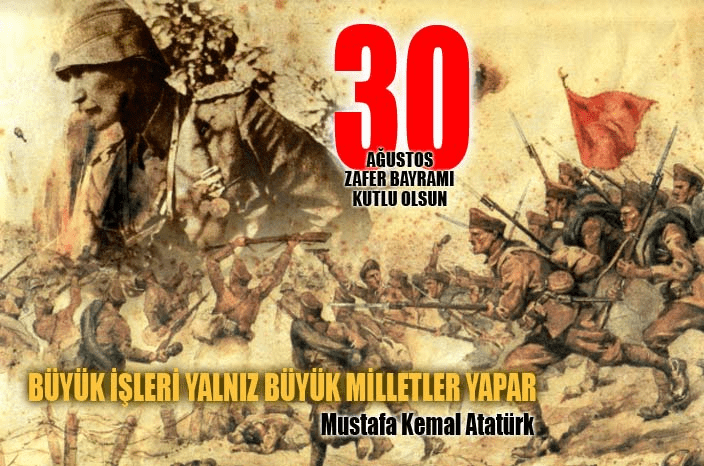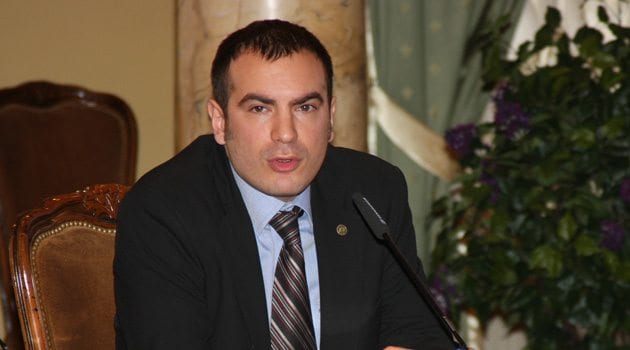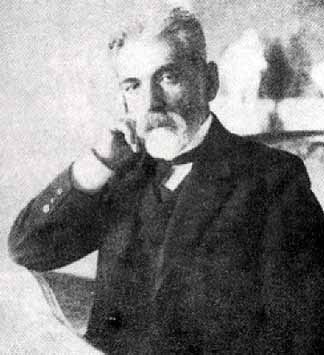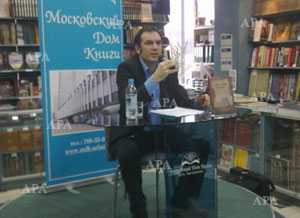Mehmet Perinçek
Today is the 98th anniversary of the beginning of the Great Offensive (Büyük Taarruz), which ended the Greek occupation in Anatolia and brought Turkey’s War of Independence to a final victory. In current times as tension between Turkey and Greece gains momentum in the Eastern Mediterranean and Aegean Seas, the propaganda that the Turks committed ethnic cleansing against the Greeks during their War of Independence has picked up in the Western press.
How did one of the important witnesses of the period, Soviet Russia, evaluate the events that took place in Anatolia at that time? How did the Soviet authorities who came to Turkey then report their observations? What did the Soviet orientalists of the time write about this issue?
Let us look for answers to these questions with archival documents.
MOSCOW PROTESTS
The most important of the examples on this subject is the protest sent by G. V. Chicherin, the Soviet People’s Commissariat (Minister) of Foreign Affairs, to the governments of all countries on October 26, 1921. In his protest, Chicherin drew attention to the massacres committed against Turkish civilian population by the Greek armed forces during their withdrawal from Sakarya and demanded that these inhumane actions to be stopped as shown below:
“The savage and inhumane actions undertaken by the Greek Armies on the lands of Asia Minor (Anatolia – MP), obligated the Government of Russia, to bring in front of all governments the issue of the attitude that needs to be taken against these actions and forced to draw their attention on the terrible destruction and barbaric atrocities the local people suffered from the Greek Army in all Turkish regions under the Greek occupation. Even neutral observers and telegraph (news – MP) agencies emphasize that all Turkish regions occupied by the Greek armies have been converted into wilderness during the Greek withdrawal.
In all places where Greeks have retreated, Turkish villages are being burned and the population is completely destroyed or taken as prisoner while women are subjected to the most brutal rape. Among the Turkish population, only those who could hide in forests and mountains are able to stay alive.
In the orders of the Greek command, reference is made to Prince Andrey, who ordered the Greek armies to burn down all Turkish villages on their way. In fact, Papulas, the Commander-in-Chief of the Greek armies, ordered the destruction of Turkish villages. Bloodcurdling acts of brutality that makes people rebel have been proven in the villages listed below: (…)
The Government of Russia draws the attention of all governments, to the invading Greek army’s conversion of this immensely flourished vast Turkish region into a real desert by causing its demolition. The Russian Government sees it unconditionally necessary to apply to all the governments by suggesting to take necessary steps against the Greek Government in order to stop the intolerable actions of the Greek armies in Turkey.” [1]
Turkey’s Ambassador to Moscow, Ali Fuat Pasha, responded with a thank you letter to this initiative of Russia on the same day. Ali Fuat Pasha stated in his letter that Moscow’s protest is proof of the high sense of humanity that the Soviet Government mobilized. [2]
MILITARY ARCHIVE DOCUMENTS
Documents in the Russian State Military Archive (RGVA), which is the archive of the Soviet Red Army, also shed light on this issue. In a 16-page report titled: “Anatolian Turkey”, it is expressed that the Greeks started wild massacres upon their occupation of the Izmir Region. According to this report, the Greeks also sent their agents to the Black Sea region to provoke revolt in order to create a suitable ground for the Greeks to land. The intellectuals and bourgeois Greeks in this region were invested in the idea of an independent Pontus Republic.
For this reason, in order to secure the coastal areas, the Turkish government had to evacuate the Greeks in these areas. In response to this, Greek gangs were established which raided Turkish villages, where they massacred entire populations including women or children. Thus, the mutual slaughter in the region was ignited and revenge attacks against Greeks also took place. [3]
Under the “Military Summary” subheading of a document titled “A Brief Report on the Military-Political and Economic Situation in Anatolia”, it is stated regarding the events of September – October 1921, that while withdrawing, the Greek armies burned down all villages and cities; thus it is stated that they left a complete empty land behind Mustafa Kemal’s front-line. [4]
In another report in the Military Archive, dated November 1, 1921, the following was recorded while dealing with the policies of the Greek occupation in the Thrace Region and the reaction of the local population to this:
“The status of the Greeks in Turkey mainly depends on the success of their armies in the Asia Minor front line. Bulgarians and Turks make up about two third of the Thracian population and they approach hostile invaders. The Greek government is relentlessly terrorizing other peoples, trying to crush all resistance from the people.
The Greek language has been declared a mandatory language in state and public institutions. Bulgarian and Turkish schools are closed. The ever-increasing expropriation policy, carried out arbitrarily by the use of force by the special Greek commissions, creates discomfort among the villagers.
The stated reasons gave birth to the formation of gangs in the Thrace. The gangs are made up of local Bulgarians and Turkish populations. The armed gangs procure their weapons from the stocks that were left behind Tahir Pasha’s (Turkish) army. The centers of the rebellion are the Bulgarian and Turkish villages in the Rhodope and Strandja Mountains, along the Bulgarian border. (…) The rebels have recently changed tactics and are avoiding clashes with Greek troops; they are attacking warehouses, government agencies, they are destroying supply routes and are applying terror to the representatives of the occupation administration.”
While discussing the economic situation of Thrace, the report also mentions the pillage policy of the Greeks and their seizure of grains and cattle for the needs of the Greek occupying army in Anatolia. [5]
In a military intelligence report in the archives dated September 2, 1920, with the title “Life in Turkey”, information is given that, relying on the strong support of the Entente States, Greeks behaved with conceit and arrogance toward the Turks. This is particularly evident in Istanbul, where European bigotry has made it a base for itself against the Near-East. [6]
The Red Army’s military intelligence reports sometimes convey Ankara’s statements as well. In a report conveying a news report of the Anatolian Agency dated November 3, 1920, it is stated that during their withdrawal from Inegöl towards Bursa, the Greeks burned down almost all of the villages and Yenişehir. There were even incidents in which people were burned. [7]
TESTIMONIES OF FRUNZE AND ARALOV
In a speech to the Parliament during his visit to Turkey, Soviet commander Frunze said: “exposure of the Turkish people to the rabid enemy’s brutality” evokes “great hatred” in Ukraine and Russia. [8] In addition, Fruze mentions in his memoirs regarding Turkey, that the Greeks had destroyed the Muslims in Western Anatolia, and that they also looted their property and other valuables. [9]
Soviet Ambassador Aralov wrote in his memoirs about the Greek persecution that “The fleeing enemy, in a wild rage, was burning down everything that they encountered on the road. The cities: Uşak, Aydın, Manisa and most of the villages were burned.” [10] In a telegram that he sent from Ankara to Moscow on September 2, 1922, Aralov reported that most of the Turkish villages were burned with their residents. [11]
During the days he was in Izmir for the Economic Congress, Aralov gave a statement to the reporters: “(…) our journey was very long, very beautiful, and at the same time very painful due to the destruction of the Greek cruelty. We saw the destructiveness of the Greeks with our own eyes. (…) The miserable Greeks are the tenants of foreign capitalism.” [12]
Anatoly Glebov, who was the first secretary of the embassy during Aralov’s period, also states in his memoirs that Turkish women and children shed a lot of blood in the regions occupied by the Greeks; and in return, pressure was exerted on the Greeks, in the regions under Ankara’s rule. [13]
The Soviet artist Lansere, who came to Turkey upon Aralov’s invitation during the War of Liberation years and drew many pictures there, also refers in his memoirs to the massacres carried out against the Muslims upon invasion of Izmir by the Greeks. [14]
WRITINGS OF SOVIET ORIENTALISTS
Irandust, whose articles were frequently published among the official publications of the Soviet State such as Pravda and Izvestia, also touched on Greek atrocities in his works. Osetrov, using the name Irandust, writes in his work titled “The Driving Forces of the Kemalist Revolution” published in 1928:
“The program of physical extermination of the Turkish population was implemented consciously under the rule of the invaders, so much so that the fertile lands of Anatolia were reserved for Italian and Greek immigrants. This policy has taken a very sharp turn in Izmir. Here, an openly armed war was started by Greek immigrants to destroy the Turkish population and seize their assets. Disarmament of the Turkish peasants was often just an excuse for the destruction of all their villages. In the occupied areas, the survivors of the Turkish population were pushed into complete poverty.”
In his work, Irandust also states that the Greeks of the Black Sea Region committed massacres against the local Turkish population in order to revive the Pontus State. [15]
1. Pavlovich, one of the most important experts of the Soviet State, also talks about the “terrible massacre” committed by the Greeks in Izmir. [16]
Bagirov, one of the prominent Soviet historians, wrote “The Greek occupation of Izmir and its surroundings, brought with it massacres and murder against the people, children, the elderly; it also brought tyranny to women.” [17]
The Belarusian historian I. G. Drogovoz described the occupation of Izmir in his book with the following lines:
“The Greeks that came ashore, started from the very first moment, continuous massacres, looting, rape, humiliation and murder against the Turkish civilian population. On the first day alone, they killed 400 Turks: men-women, adults-children. On the following three days, the number of Turkish deaths reached four thousand in Izmir.”
Drogovoz also states that in the days of the liberation of Izmir, Turkish troops were in a legitimate defense effort to protect the Turkish population of Izmir from looting and massacres. In response, the Greeks set many houses on fire. In addition, a Greek submarine sank a ship containing Turkish prisoners of war. [18]
FROM THE ARCHIVES IN AZERBAIJAN
Soviet Azerbaijan did not remain indifferent to the massacres of the Turkish population in Anatolia. The protest text sent by Hüseyin Rauf Bey to all governments on behalf of the Turkish Grand National Assembly on August 31, 1922, also reached Baku:
“The Greeks are committing murder in the places where they are forced to evacuate in the current battle, similar to the atrocities and disasters they committed in the regions where they were forced to evacuate in the Inönü and Sakarya wars that they lost before. After evacuating Afyonkarahisar and its environs, they set fire to a large part of the Muslim neighborhood within the holy city and destroyed many villages in the vicinity, massacring their residents. They also committed similar crimes during the combat period of Dumlupınar War, in the Olucuk area around Altuntaş, filling the people, women and children included, into mosques and prayer houses, they burned them alive.
The Greeks completely burned down the towns of Umurbey and Çalköy and partially massacred the people living there, burning some people alive. They also burned down Dumlupınar.” [19]
Azerbaijan’s People’s Commissar for Foreign Affairs M. D. Huseynov attached a note on this document saying: “The ‘Rabochiy’, ‘Trud’ and ‘Communist’ newspapers should publish this article, specifying the anger and protest of the Soviet State. They should also show the ingenuity of Greece, the sister of the Allies that protect it.”
In addition, on October 2, 1922, Azerbaijan Communist Party decided to establish an aid committee for helping the Anatolian Turks that were harmed by the Greeks and opened up a special fund for it. [20]
FROM THE ARCHIVES OF WESTERN EUROPE
Even though they did not voice it at that time, the Western European States which supported the Greek invasion included in their secret reports that Greek atrocities were carried out in Western Anatolia. Striking examples can be found in the works of Salahi Sonyel, who has been working in the European archives for many years; for example, in the reports of the officials of countries such as England, America, Italy and Sweden on this subject together with archive registration numbers. [21]
Although very rare, there have been writers who touched this point among Greek historians. Georgios Nakracas, in his work which he expresses to have written in order to enlighten the fictitious historical myths and to contribute to the correction of mistakes, acknowledges that the Greeks committed massacres a few hours after their arrival in Izmir, followed by more slaughters that took place in cities like Aydın, Menemen and Bergama. [22]
THE TURKISH POPULATION WAS SAVED FROM ANNIHILATION
The documents cited above are just some examples of what is to be found in the archives, there are much more sources available. If an ethnic cleansing took place in the Aegean Region, it was done against the Turkish population during the Greek occupation.
The Turkish War of Independence, which attained victory with the Great Offensive (Büyük Taarruz), not only saved the lands occupied by the imperialist forces, it also saved the Turkish population in the region from being exterminated.
[1]From the The Foreign Policy Archive of the Russian Federation (AVPRF) f. 132, op. 4, p. 4, d. 2, l. 89.
[2]For the French original, French copy and Russian translation of the letter, pls see: AVPRF f. 132, op. 4, p. 4, d. 6, l. 62-64.
[3]For the full report pls see: RGVA f. 25899, op. 3, d. 319, l. 36-43, 36 ob.-43 ob.
[4]RGVA f. 25899, op. 3, d. 498, l. 198.
[5]RGVA f. 25899, op 3, d. 482, l. 60 and 60 ob.
[6]RGVA f. 109, op. 3, d. 278 or 279, l. 31.
[7]RGVA f. 109, op. 3, d. 302, l. 20 ob.
[8]Rasih Nuri İleri, Atatürk ve Komünizm, Scala Printing House, 5thed., Istanbul, May 1999, p. 314.
[9]Frunze’nin Türkiye Anıları, Cem Printing House, Istanbul, 1978, pp. 8, 108.
[10]S. I. Aralov, Bir Sovyet Diplomatının Türkiye Hatıraları, Burçak Printing House, Istanbul, 1967, p. 142.
[11]Russian State Archive of Socio-Political History (RGASPI) f. 544, op. 3, d. 117, l. 150.
[12]Newspapers Vakitdated February 26, 1923 and Tanindated February 26, 1923.
[13]Anatoly Glebov, Liniya Druzhby, Sovyetsky Pisatel, Moscow, 1960, p. 34.
[14]Y. Y. Lansere, Ankara Yazı, Kaynak Publishing, Istanbul, October 2004, p. 91.
[15]Irandust, Dvizhushie Sily Kemalistskoy Revolyutsii, Gosudarstvennoe Izdatelstvo, Moscow-Leningrad, 1928, pp. 67, 70.
[16]M. P. Pavlovich, “Revolyutsionnaya Turtsiya”, Turtsiya v Borbe Za Nezavisimost, Nauchnaya Assotsiatsiya Vostokovedeniya Pri TsIK SSSR, Moscow, 1925, pp. 49, 63.
[17]Y. A. Bagirov, Kurtuluş Savaşı Yıllarında Azerbaycan-Türkiye İlişkileri, Bilim Publishing, Istanbul, February 1979, p. 108.
[18]Pls see I. G. Drogovoz, Turetskiy Marsh. Turtsiya v Ogne Srazheniy, Harvest, Minsk, 2007, pp. 319, 340.
[19]State Archive of Political Parties and Social Movements of the Azerbaijan Republic, f 281, op. 1, d. 27, l. 116-117 (in Turkish). The Russian translation is in f. 28, op. 1, d. 68, l. 115b, 118.
[20]For details pls see Betül Arslan, Türkiye Azerbaycan İlişkileri ve İbrahim Abilov (1920-1923),Kaynak Publishing, Istanbul, October 2004, p. 108 ff.
[21]Pls see, Salahi Sonyel, Mustafa Kemal (Atatürk) ve Kurtuluş Savaşı, vol .1, TTK Publishing, Ankara, 2008, p. 171 ff; Salahi R. Sonyel, Kaygılı Yıllar, Remzi Publishing, November 2012, pp. 253 ff, 264 ff.
[22]Pls see. Georgios Nakracas, Anadolu ve Rum Göçmenlerin Kökeni, Kitabevi Publishing, Istanbul, 2005, p. 70.
| Rate this (8 Votes) |
Related articles
- Last week in Turkey: Greek-Egyptian maritime agreement, delegation in Lebanon, rise in TurkeyRecent events in Turkey went by full speed over the last week. The maritime border…
- Last week in Turkey: Is Turkey shifting back into Washington’s axis?The Idlib crisis in Syria The martyrdom of 13 Turkish soldiers in two separate strikes…
- Last week in Turkey: Rising political tensions between Turkey and SyriaConsidering Turkey’s conditions, for the first time in many years, we were having a calm…






